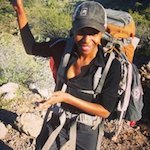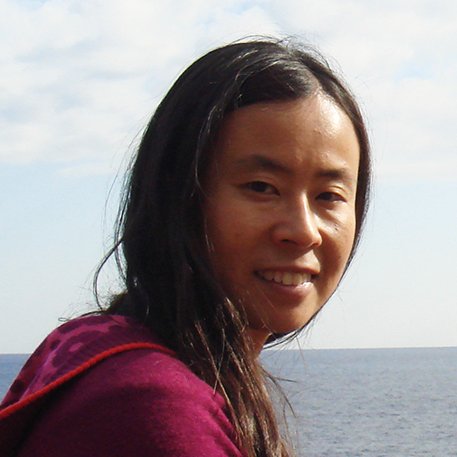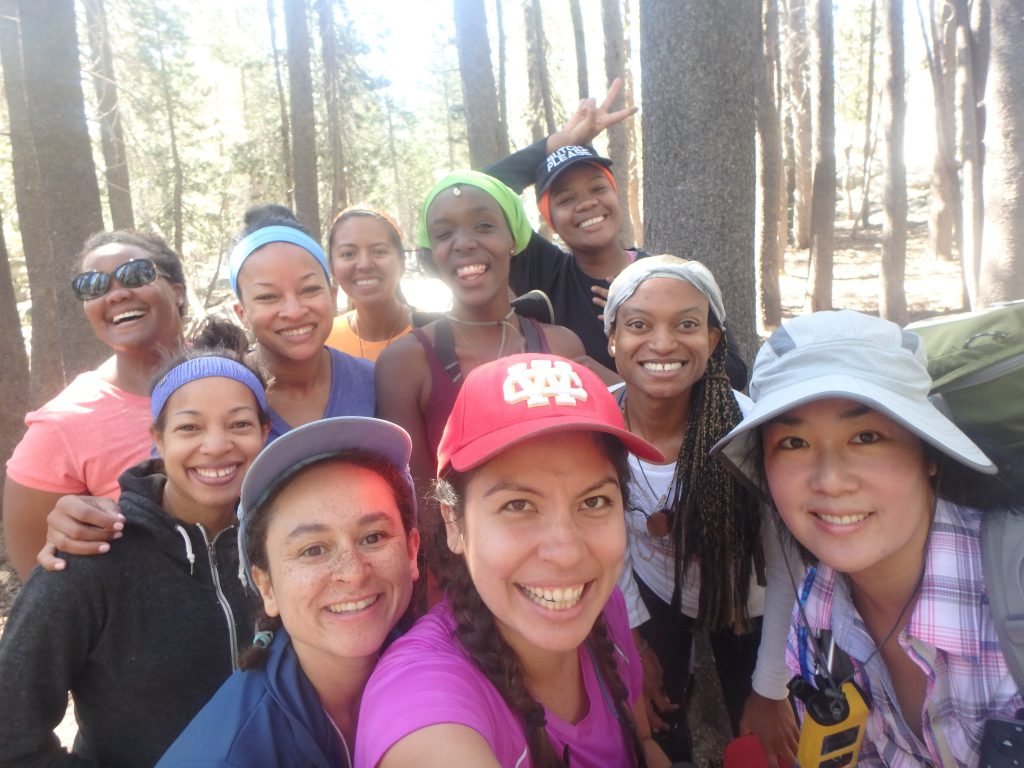Celebrating Chelsea Griffie and Women of Color in the Wilderness
Interview with Chelsea Griffie, by Heather Sullivan Co-Founder of Balanced RockIn 2003, Balanced Rock was a fledgling organization under its former name, Wild Women Workshops. It was winter and we hosted a writing and yoga workshop at the Yosemite Bug Hostel in Midpines, CA. A woman named Deni Hodges from San Francisco was a participant on the course and yoga teacher herself. At the end of the course, she told me she really got a lot out of the course and wondered if we would consider offering courses for women of color (WOC). “As you can see,” she smiled, “I am the only black woman here.” I looked around, agreed as it is common in these Sierra Foothill towns, and responded that we would consider it. She was really interested in our backpacking trips and thought it would be great to get a group of WOC on the trail.The next summer we offered our first WOC backpack. One of my first challenges was how to staff it. As with Deni’s observation in the café that day, a similar reality holds true in outdoor leaders and guides. At that time, I knew of one woman who held the credentials Balanced Rock requires in guides. She was a local “rock”-star, Chelsea Griffie, and also a dear friend. I was excited to tell Chelsea about this trip and more excited to see if she would lead it. I was more than surprised at her initial response, “Am I of color enough?” As someone who generally has an opinion on most things, I didn’t really know how to answer. I found myself really uncomfortable with this question, with the fact Deni was the only woman of color in the room that day, that I only knew one guide who could potentially lead the trip or what “of color enough” meant.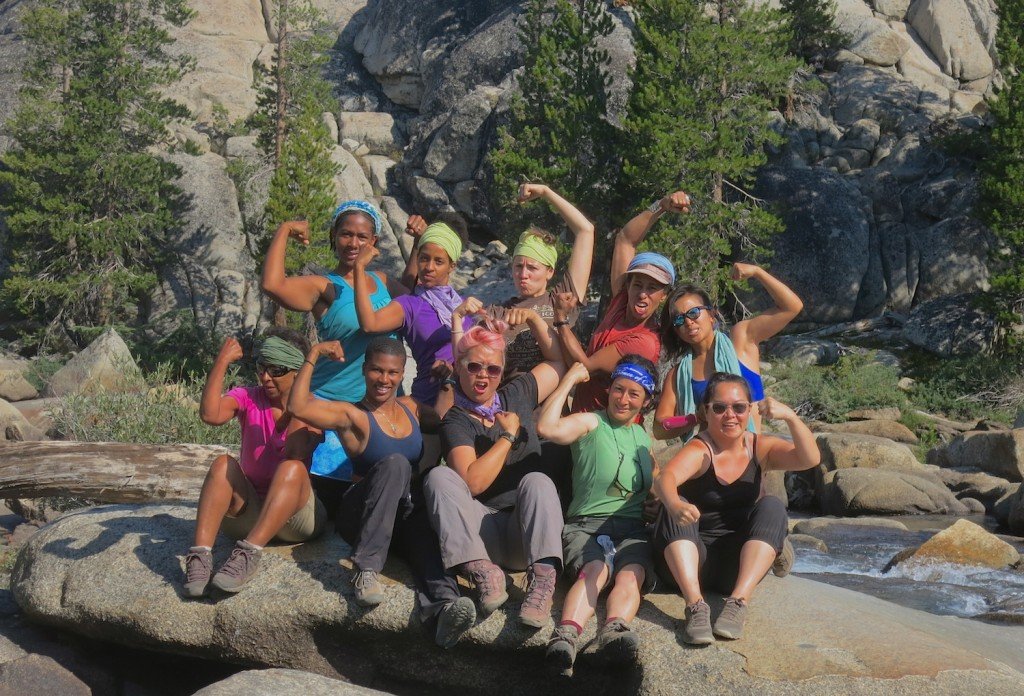 To my relief, Chelsea said Yes. And not only yes to that trip but she has been leading the Balanced Rock WOC trip for 13 years inspiring WOC, recruiting women to take this chance and representing WOC in the backcountry. “You should see the look on people’s faces when we pass them on the trail," Chelsea says. "It feels so good to be out there" and one participant stated, “I feel like this is my Park too, now. I didn’t feel that way before.”
To my relief, Chelsea said Yes. And not only yes to that trip but she has been leading the Balanced Rock WOC trip for 13 years inspiring WOC, recruiting women to take this chance and representing WOC in the backcountry. “You should see the look on people’s faces when we pass them on the trail," Chelsea says. "It feels so good to be out there" and one participant stated, “I feel like this is my Park too, now. I didn’t feel that way before.”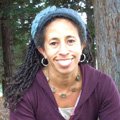 Chelsea told me this year she was moving on to other things and giving her knees a break. Everyone at Balanced Rock wants to thank you, Chelsea, for your dedication to this program and for really championing the importance of WOC in the wilderness. What a legacy you have left!
Chelsea told me this year she was moving on to other things and giving her knees a break. Everyone at Balanced Rock wants to thank you, Chelsea, for your dedication to this program and for really championing the importance of WOC in the wilderness. What a legacy you have left!
Here is a recent interview I had with Chelsea and some reflections from past trip reports.
Give us a little background of yourself (Where you grew up? How you got into outdoor endeavors?)
I grew up in the suburbs of Chicago. My mom was an RN and led a couple things with Girl Scouts when I was young. But my mother didn’t do camping. I always knew I wanted to do backpacking. In my mind, I knew I would have to wait until someday when I moved to California to try this.When I turned 13, we moved to San Diego. I saw mountains and snow and I wanted to be in mountains and snow. So I started these outdoor pursuits in my late 20’s. I started rock-climbing around 27. I first backpacked in order to go rock climbing in King’s Canyon National Park.
Who introduced you to outdoor activities?
A boyfriend at the time named Chris introduced me to climbing. I was living in L.A. and we did a lot of car camping and climbing in Joshua tree and Idyllwild, CA. Car camping is a great introduction to camping…kind of easing your way in. I started leading some outdoor trips after that and eventually came to Yosemite to climb. We climbed El Capitan in 2001. My first time climbing it we climbed it in 26 hours. We were aiming to climb in under 24 hours but I was just so excited to climb it! I have climbed that formation 4 times. Oh, and I was the first black woman to climb El Cap. That’s kinda cool.
How do you support people to feel more comfortable in the wilderness?
Good food makes everyone happy and calm. Culturally appropriate food makes people feel at ease. A recipe I like is veggie chili…. it seems to work for everyone (unless someone doesn’t eat tomatoes (insert un-mistakable Chelsea laugh).
Who were influential people in your life, specifically to working in the outdoors and as a WOC?
My first real guiding job was working with Yosemite Guides. They did trips with kids: hiking, fishing, bird-watching, and that kind of thing. I learned of an organization called Bay Area Wilderness Training (BAWT) who were offering outdoor leadership trainings specifically for people of color (POC). I took this BAWT training and moved into leading trips for them and was eventually asked to be on their staff as Program Manager, which I did for 5 years.
And then you founded LA Wilderness Training (LAWT)?
Yes…I realized there was nothing like this in the Los Angeles area and since I saw that need I decided to go for it with BAWT as a model.
So you just started another non-profit on your own?!
Yeah….I realized the need and I knew I could do it. That said, it is really hard to run a non-profit in L.A. especially trying to get people outside. There is a lot of inherent fear. People imagine it is dangerous….bears, snakes, etc. Many people don’t have the gear, confidence, experience or support network to do it.
What is the importance of having programs like the Balanced Rock WOC program?
If you look on a hiking trail, you see mostly white people, at least the places I’ve been. I felt lonely out there and wanted to share how awesome it is to be out on a trail and seeing such beauty with others and other POC . I wanted to get more POC out there! Hiking, backpacking, climbing. There’s nothing like just seeing a lake amidst the big mountains.
What have been your highlights working this program over the years?
It is exciting to get other WOC outdoors and doing what we do in terms of introducing the Balanced Rock curriculum of mindfulness practices, dialogue, and learning the hard skills of how to backpack and set up camp. I’ve had amazing co-leaders over the years: Echo Davenport, Cynthia Ramaciotti, Elizabeth Sy, and Miho Aida. All of these women are doing amazing things in the world in terms of inclusion and awareness and social justice. They have brought so much to this program as well.
Have their been any challenges working this program over the years?
Of course. Every trip is different with different challenges. The trick is to figure out how to work it out. Funding is one. It is important that people know about the program and that there is a specific WOC scholarship fund that they can donate to. It is great that tuition assistance is available for this course and all BR courses.
What advice would you give to future instructors of this program?
I recommend doing and teaching what you know. Be communicative. Work things out. Talk things out. Be present. Be a bit methodical. And always ask: What are the implications of what I am doing/saying/modeling? Be flexible and use intelligence in decision making.
What wisdom would you impart on future participants of this program?
Have patience being out there…if you are weirded out or feeling challenged because it feels hard or unfamiliar…stick with it and see where it takes you.Be open to see if there are parts of the experience you like or if there are some surprises and learnings to be found. Often people’s most challenging moment(s) on a course become their highlights or biggest learnings.
Why is this WOC trip important to have in existence?
Oh wow. It is important for so many reasons. It is important because everyone should get to share this beauty. Everyone should feel that parks and open spaces belong to them It is important to enjoy great views across a lake, or experience the challenge of walking there, or work together with other people to make a camp or climb a summit.It is important to be able to claim this space as our own.It is important to have a safe space to have important discussions of race and diversity and inclusion.It is important for women to learn from other women and WOC to learn from other WOC.
I have heard from instructors and particpants of this course that a highlight is the community created on this trip and some of the really rich or deep discussions and sharings. What are some conversations/discussions that arise on a course?
We’ve had a lot of really great and important discussion out there. One was on the definition of what WOC is. One is how it feels to be a WOC in the wilderness. I remember one share about the podcast, Code Switch, that discussed how people of color have different ways of talking based on audience. This was a really interesting insight because we then observed ourselves doing it at times when we ran into different people on the trip.
What is next for Chelsea?
Well, I am 50 and noticing myself getting older. I think I am going to get into nursing. My mom was an RN and recently I had a doctor who was a WOC that was able to give me a diagnosis that other doctors were not able to give me. This was inspiring and so important to me. I think I’d really like to work with people who are getting older. I’ll be moving back to Oakland in May.
Thank you Chelsea. For this interview. For all you do and have done in this world and continue to do. Bringing your laugh and unique view and your go-for-it-ness into this world. We are glad you will be closer to us in Yosemite.
Balanced Rock is committed to the WOC program and keeping this space for WOC who wish to learn wilderness skills and connect to wild places in a supportive community.
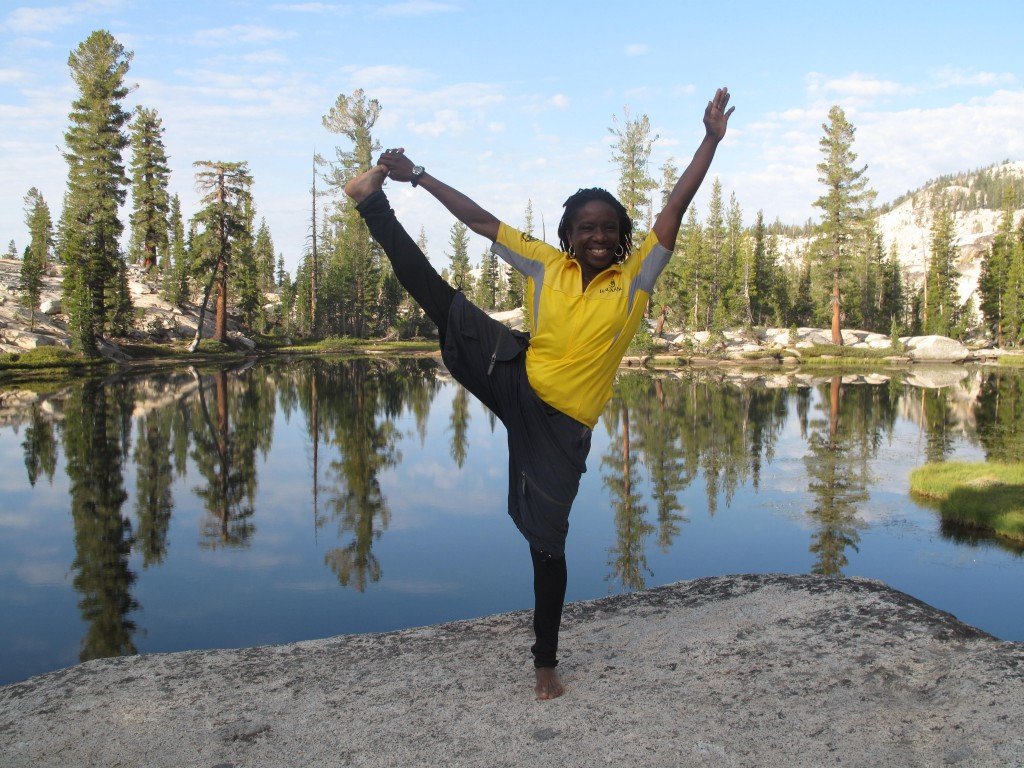 Check out more information on the Balanced Rock 2018 Women of Color Wilderness Backpack and to meet our newest instructor Grace Anderson who will be co-leading this year’s course with Miho Aida, who has now led the course for the past three years. We are excited to see where Miho and Grace will inspire the program that Chelsea has been so fundamental in laying the framework for.
Check out more information on the Balanced Rock 2018 Women of Color Wilderness Backpack and to meet our newest instructor Grace Anderson who will be co-leading this year’s course with Miho Aida, who has now led the course for the past three years. We are excited to see where Miho and Grace will inspire the program that Chelsea has been so fundamental in laying the framework for.